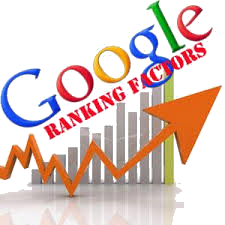 1. Keyword in beginning of your title tag
1. Keyword in beginning of your title tag
Google gives more weight to keywords found in the beginning of a title tag.
2. Content Length
Write at least 1500 words for content that you’re trying to rank in Google.
3. Page Loading Speed
Shared hosting can slow down page loading significantly. It may be worth it to have a dedicated server.
Use the Google PageSpeed Insights tool to figure out your site’s loading speed. WordPress plugins W3 Total Cache and WP Smush It (both free) can help speed things up.
4. Keyword Prominence And Positioning
Including keywords your URL, in the beginning of your article and in H2 tags help PageRank. This lets Google know that your page is about that keyword.
It will help if you include your target keyword at the beginning of your title tag, in the first 100 words of an article and in H2 or H3 tags.
5. Page Authority/PageRank
The authority of your page is determined by the quality and quantity of inbound links this is by far the most important ranking signal that Google uses.
6. Domain Authority
When ranking a page, Google also factors in the authority of the domain as a whole (that’s why sites like Amazon and YouTube rank for almost everything). You can check your Domain Authority using Open Site Explorer.
7. Link Relevancy
A link’s authority is measured by the PR of the linking page.
8. Dwell Time
This is the amount of time your visitors spend on the page. If visitors go to a page and click to something else in just a couple seconds it doesn’t count. They need to stay on the page for minute or two.
9. Responsive Design
More than half of the web’s traffic now comes from mobile devices. Responsive design is very important and a ranking factor.
10. Duplicate or Outdated Content
Google can tell an outdated page by how often it has been updated. Duplicate content will also hurt PageRank.

